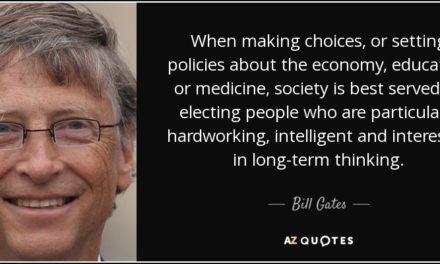And the cycle begins anew. Or, maybe, in truth, it never stopped.
The toxic stew of guns, racism, injustice, and anger continues to poison America, and we appear to lack the resolve, the political will, and the honesty to confront it directly and courageously.
Maybe this time will be different. Of course, we’ve said that before.
The news media always move on, chasing “breaking news” by the hour, passing off talking heads and talking points as analysis and insight and ignoring the follow-up that is needed to make sure that politicians’ sound bites are followed up with real action.
We know that it doesn’t have to be this way. Dr. Martin Luther King Jr. proved it.
Changes
He had his movement marginalized and demonized, he was vilified as a Communist, his rooms were bugged by his government, and when some of his nonviolent protests turned violent, he was blamed. But he refused to let anybody turn him around, and it was in looking to what could be that he was able to rise above what was.
Most of all, he called on the news media to show the ugly face of racism while refusing to return hate to police officers who beat protesters, people who sabotaged marches, and segregation forever extremists who bombed churches.
Perhaps, those were simpler times. Today, the emphasis is on the instantaneous, the revolution in social media, and a political system emphasizes short-term advantage over long-term answers. Today, we are all reporters, and the live streaming of people being killed while being arrested or reaching for their driver’s license may in time even turn the traditional news media to puncture the superficial and examine the reasons for the cycle.
In addition to social media, what’s also changed is the ubiquity of guns which leads to the militarization of police departments and a climate of uncertainty about who is armed pushes racism to the surface in what used to be routine police actions.
Rearing Racism’s Ugly Head
It also pushes racism to the surface as shown by those that who quickly argue that the Black Lives Matters movement – just as they did with Dr. King – is responsible when peaceful protests are disrupted by those bent on doing harm.
It’s pushed to the surface in the white faces on television who are wed to their denials that there is racism in America and argue with African Americans that it does not exist. They criticize extreme comments by a few African Americans while saying nothing about the racist comments made and the ugliest stereotypes perpetuated on news stories every day about our president, African Americans, and even black victims of crime.
There’s a tendency in the media to treat this as a debate (point-counterpoint) of talking heads with their talking points rather than stimulate a meaningful analysis of our history, an examination of our culture, and a way forward that strengthens our nation to live up to its creed.
In recent weeks, Memphis has been confronting its ugly history of racism. We’ve acknowledged, discussed, and confronted the massacre of 1866 and the lynchings that murdered black people in the city. Is it possible that Memphis can be the model for a nation that needs to acknowledge and confront its past and the present crisis? The average number of African Americans lynched between Reconstruction and the Civil Rights Act of 1968 was about 40, and more than twice that number were shot by police last year (between 2009 and 2015, 24 Memphians were killed by police with no prosecutions).
Insidious Daily Racism
There is a thin line between governments in history encouraging and allowing the lynching of African Americans and governments today refusing to deal with the shootings of African Americans that come with frightening regularity. As a result, there is real fear and frustration in the lives of black Americans and we need to embrace their reality as our own if we are to fight racism from going even more mainstream.
As long as 50 percent of whites watch these serial murders and still say that they don’t believe African Americans are treated unfairly by the police, this delusion obscures real answers to what is clearly a national problem.
We do not begrudge leaders, black and white, who call for more love and more discussions, but those are only words. We have heard them before, and in time, they fade away and nothing changes.
This time, something has to change. Our nation has a cancer that is eating it up from within, and the first step toward a better future is admitting that American’s original sin has morphed into a vein of racism that confronts so many of our fellow citizens today.
They face it in insidious ways every day that are more subtle than police shootings. It’s found at work, it’s found in Driving While Black charges, it’s found in the way the scales of justice are unbalanced against them, it’s found in the way that parents must have “the conversation” with their children, particularly their sons, and it’s found in the way that they often feel like strangers in their own land.
It’s About Changing the Culture
It’s been said that culture eats strategy for lunch. In the wake of the escalation of violence, we don’t just need more strategies for building confidence by every member of the community that police officers will treat them fairly or better training police. Strategies are fine, but what is needed is to change the culture that makes African Americans a disproportionate percentage of victims shot and killed by police last year.
If the U.S. Department of Justice wants to have profound impact on this issue, it will do more than investigate. It will articulate an agenda and plan of action for the nation that lead us to a fairer, more equal, more just country.
This will of course require white America to quit being dismissive of black rage and frustration and come to grips with their causes. White America needs to quit dismissive bromides like “All Lives Matter” in the face of African Americans willing to have a serious discussion about race. White America needs to abandon the victimhood of reverse racism as a way to deny anti-black bias. And white Americans need to stop the double standard that support protests until the protesters are people of color.
Until then, claims of American exceptionalism ring hollow. After all, before we can claim our duty to transform the world, we have to transform it here at home. There is no “city upon a hill” until its doors are open to every person and it is a place where they can find equal opportunity, liberty, and justice.
We pray for the families and friends of Alton Sterling and Philando Castle, who were killed within 48 hours of each other, and we pray for the families and friends of police officers killed and wounded in Dallas.
We’ve Been Warned
These are difficult times for America, and the saddest fact of all is that we should have seen this coming. Our African American friends have been trying to tell us for years about the building pressure for change, but we refused to hear them.
That’s why that in the face of calls for discussions about these issues, white America should start by shutting up. We should listen, really listen, to the experiences, fears, and realities that are part of the daily lives of our African American brothers and sisters.
Then, we are called to act and to do it with the certitude that when the American Dream is denied to one of us, it is denied to all of us. There are those who call for building even more walls between us, but in truth, it’s time to obliterate all the walls white America has built with our own outrage and demands for change.
It begins with an attack on the institutional racism in our public institutions: law enforcement that disproportionately arrests African Americans, a justice system that doles out disproportionately harsh treatment of minorities, the mass incarceration of African American men, the dismantling of the nation’s safety net, the lack of prosecutions for police shootings, and racial disparities in employment, wealth, and opportunity.
There’s no reason Memphis can’t be ground zero for the changes, the actions, and a different culture needed in the United States. No city has more reason to lead this movement, and there’s no time like the present.
***
Join us at the Smart City Memphis Facebook page for daily articles, reports, and commentaries relevant to Memphis.






Amen.